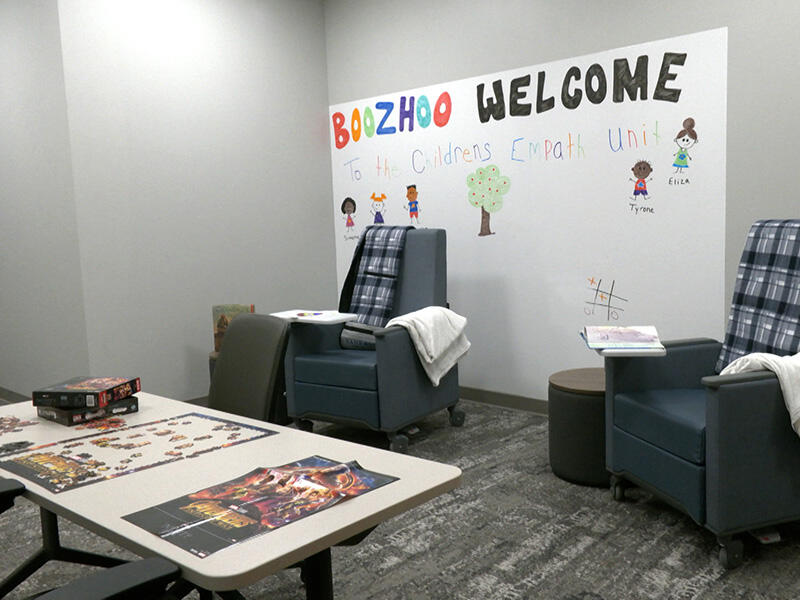When the new Sanford Bemidji Crisis Center opened its doors last fall, it became the first in the region, and the first in Sanford’s footprint, to offer an innovative new way to treat patients in need of care. emergency mental health.
The center houses an EmPATH unit, short for Emergency Psychiatric Assessment, Treatment and Healing.
“The review of community needs identified two major needs. One was the need for adult hospital beds. People had to travel great distances, dividing families, and their families really couldn’t follow them to get treatment and work together,” said Jay Coughenour, director of behavioral health at Sanford Bemidji Medical Center in Minnesota. “The second was the people who were in crisis, and the ability to try to slow that down and really identify what people need.”
A soothing and calm space to heal
The EmPATH unit is made up of a family, adult and children’s area with multiple recliners, games and puzzles, possibilities to color or interact with an iPad, which allow the patient to decompress. Mental health providers then help develop skills, such as anger management, anxiety reduction, or depression reduction, all in a calm setting where patients can receive personalized care until 23 hours.
“Crisis is defined by the person experiencing the crisis,” said Kirsten Craft, clinical manager of urgent and emergent services at Sanford Bemidji.
A person may experience increased mental health symptoms due to environmental stressors, she said, or a situation such as a conflict with a significant other, a sibling, a parent or a guardian, which can lead to increased emotional distress. The EmPATH unit will provide a supportive environment to help manage these symptoms.
“We meet their needs in a safe, supervised and voluntary environment. We meet the needs of patients in an open space for them to learn and practice skills to better manage their mental health symptoms. People can go home and then we call them and follow up with them to check in. If people express the need for additional support, they can return to the EmPATH unit for additional support. It’s a new way of thinking about supporting individuals in the community.
This facility is the first in the state to offer separate EmPATH units for adults and children. There is also a unit for families, as well as spaces that have been designed for cultural and spiritual healing, especially for Indigenous patients.
“The beliefs you have and the people you have around you and your culture are very important to your recovery process,” Coughenour said. “Not really trying to incorporate that into the work we do would be blatant.”
Safer and more effective mental health care
In addition to providing a safe space for patients, the unit also frees up other service areas. More importantly, it relieves pressure on the hospital emergency department, which can be overwhelmed with patients and overwhelming for someone going through a mental health crisis.
“The emergency room is naturally chaotic and can be overwhelming. Now we can take them out of that environment and put them in a calm, supportive environment where we can meet their mental health needs. During this time, a person may experience a reduction in mental health symptoms, be able to plan for safety and return home, while remaining in the community,” Craft said.
“To create a space where people can feel differently and then they can have that mental capacity to be able to think about creating hope, that’s pretty exciting.”
If a patient is in crisis, one option is to call the Sanford Bemidji Mobile Crisis Team at 1-800-422-0045. This service is available 24 hours a day, all year round. The mobile crisis team can recommend the crisis center and the EmPATH unit to people in need.
Whether you are struggling with suicidal thoughts yourself or love someone who is, get help now by contacting one of the following:
Visit sanfordhealth.org to find resources, risk factors, warning signs, and steps you can take to help a loved one.
Learn more
…
Posted in Bemidji, Bemidji, Children, Behavioral Health, Emergency Medicine, Here for All. Here for good.

